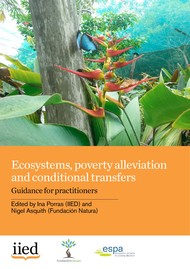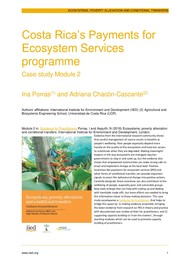Ethical land-based community carbon
Smallholder and community carbon projects have shown that they can deliver local benefits and promote climate resilience (Grieg-Gran et al., 2005; Milder et al., 2010). Their emphasis on co-benefits — such as food, energy, carbon sequestration and the protection of water quality and habits for biodiversity — provides an advantage when it comes to selling carbon certificates in voluntary carbon markets, as they appeal to companies’ corporate social responsibility (CSR) agendas. ~There is real demand for carbon offsets from reforestation, forest conservation and `climate-smart’ agriculture (Hamrick and Gallant, 2017a). But to ensure the success of community carbon projects, project developers are needed to ensure delivery of carbon sequestration to offset buyers’ carbon footprints and generate benefits for the farmers. Providing credibility along the value chain through clear project design and monitoring and evaluation processes is also key.
This case study is one of several relating to the Toolkit: Ecosystems, poverty alleviation and conditional transfers. To access the full toolkit and other related case studies, please visit the ‘Publications’ section of the IIED project linked at the bottom of this page.
Cite this publication
Available at https://www.iied.org/g04271







